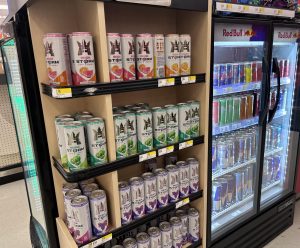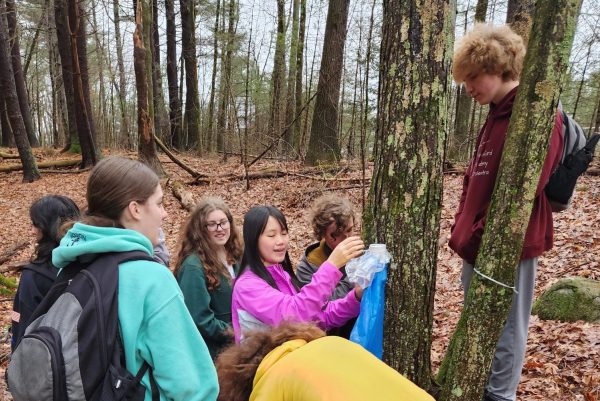The vegan lifestyle’s affect on you
January 19, 2016
Currently, there are 16 million vegans in the United States. However, this new diet is often misunderstood by both vegans and non-vegans alike.
So what exactly is the “Vegan Lifestyle”, and how is it any different from a vegetarian diet?
Both groups do not eat any kind of animal meat, but vegans, do not consume any animal products at all, including dairy products like milk and butter. WA senior Lindsey Pacifico has lived the vegan lifestyle before, and recognizes some of the challenges associated with it.
However, she was not always vegan, only choosing to adopt the lifestyle after watching documentaries showcasing where meat and other animal products come from.
“I saw a video on animals being slaughtered, and what actually happens. I found it really disturbing […] There was this one documentary I watched called Earthlings, and it was really biased, but it changed my whole opinion, it was really disturbing,” said Pacifico.
After deciding she was going to be vegan, Pacifico found that the lifestyle was overall beneficial for her health.
“I’ve heard you can get heart disease from eating red meat, so not eating meat anymore seems healthier,” said Pacifico.
Many individuals jump on the vegan train because of the opportunity to become healthier, as cow’s milk and red meat both increase the chance of heart disease. In addition, people are now more encouraged to switch to the vegan lifestyle by supermarkets, which now sell a much more varied selection of alternatives to milk and meats, and fast food chains that are now catering towards the vegan market.
According to an article on huffingtonpost.com, “On the other hand, according to USDA forecasts, the average American will consume 12.2% less meat and poultry in 2012 than they did in 2007. Beef consumption has been in decline for about 20 years; the drop in poultry and pork has also been steady for about five years […] USDA statistics reveal that per capita egg consumption in the U.S. has been steadily declining for the past six years and average per-capita consumption of cow’s milk fell from 24.3 gallons per person in 1994 to 20.8 gallons per person in 2008.”
While this decrease in potential heart failure and increase in plant based foods and adoption of veganism seems all well and good, the lifestyle does not come without challenges.
Pacifico was unable to manage staying a vegan for long periods of time.
“I was a vegan before, and then I went vegetarian, and then I went back to being vegan, and now I’m vegetarian. It’s a hard thing to keep up with. That’s kind of why I switched to being vegetarian, because it is so challenging. Like, if you go out to eat, you really can’t get anything. I went to a pizza place once [with my friends] and they only had pizza. So I couldn’t get anything, and I just sat there,” said Pacifico.
Especially for those who are living in households with others who eat meat, being vegan can be a an inconvenience.
“I found it really hard at first. The rest of my family is all meat eaters. Sometimes it would be a pain, and [my parents] would complain about making an extra bit of food just for me,” said Pacifico.
In addition, Pacifico cautions those who may go a little too far in choosing vegan diets.
“I think it is a good thing, but people can’t limit themselves too much because it can end up being unhealthy. Some people go really extreme though, and some cases are classified as eating disorders,” said Pacifico.
Overall, becoming a vegan is something that people should consider. While it may be difficult to suddenly stop consuming meat and dairy, especially when it is an everyday staple of your diet, and it may be difficult if you live around others who are still meat eaters, it may be healthier, as the process is getting easier, and more and more are Americans choosing to abstain from animal products.

















